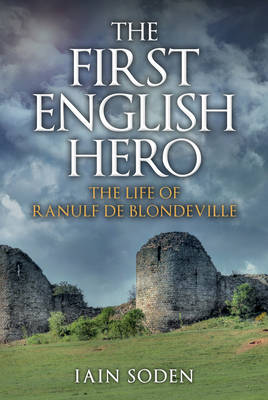
- Retrait gratuit dans votre magasin Club
- 7.000.000 titres dans notre catalogue
- Payer en toute sécurité
- Toujours un magasin près de chez vous
- Retrait gratuit dans votre magasin Club
- 7.000.0000 titres dans notre catalogue
- Payer en toute sécurité
- Toujours un magasin près de chez vous
23,95 €
+ 47 points
Description
Ranulf de Blondeville, 6th Earl of Chester, was, by his own declaration, a Norman. Possessing, at one time or another, a Dukedom, numerous Earldoms and Viscounties on both sides of the Channel, he owned and controlled about a third of both England and Normandy. Skilled in siegecraft, Ranulf spent a lifetime at war alongside first the impetuous King Richard the Lionheart and then his reviled brother King John. He ably commanded their armies and earned a reputation for both his offensive spirit and his tenacity in defense as first Richard and then John loosened their grip on Normandy and Ranulf lost his homeland. Loyal to a fault, in 1215 Ranulf refused to sign Magna Carta and spent the next two years as England's main defense against a French-backed rebel army. Following John's death, at Gloucester Cathedral he was offered the regency of all England. He graciously refused, and his military might tipped the balance in support of the child king Henry III. Within months the French fled in disarray. In 1218 Ranulf went on crusade where he earned a reputation as a fearsome fighter and leader, covering himself with glory and winning the admiration of Rome. Later, he used his experience of war to build spectacular castles and his diplomacy secured economic prosperity for much of the Midlands. Aged 60, he returned spectacularly to the field of battle in France. He died at the height of his fame in 1232 and even Henry III rushed to be at his bedside. It was said in France that the devil himself had thrown his soul out of hell--even in death he was simply too hot to handle! By Ranulf's own declaration, his body was that of a foreigner; but surely his heart and soul belong to England. This is the story not just of one man, but of the birth pangs of the English nation.
Spécifications
Parties prenantes
- Auteur(s) :
- Editeur:
Contenu
- Nombre de pages :
- 288
- Langue:
- Anglais
Caractéristiques
- EAN:
- 9781398106741
- Date de parution :
- 15-10-21
- Format:
- Livre broché
- Format numérique:
- Trade paperback (VS)
- Dimensions :
- 156 mm x 234 mm
- Poids :
- 439 g

Les avis
Nous publions uniquement les avis qui respectent les conditions requises. Consultez nos conditions pour les avis.






